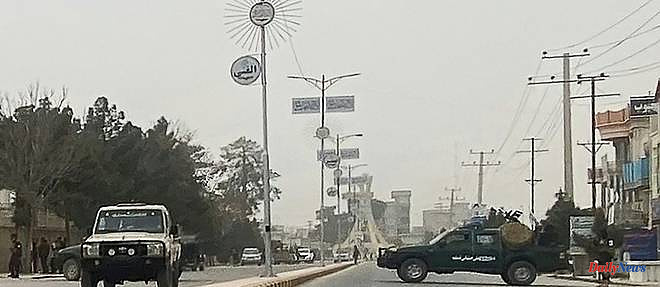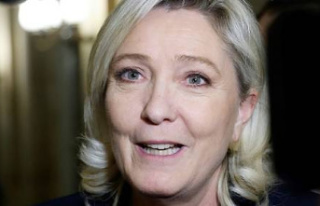A senior Taliban official, the governor of Balkh province in northern Afghanistan, known for his fight against Islamic State (IS) jihadists, was killed Thursday in a suicide bombing at his offices in Mazar -i-Sharif and claimed by ISIS.
Mohammad Dawood Muzammil is one of the most senior Taliban leaders to be assassinated since they returned to power in August 2021.
An IS fighter waited for the governor outside his office and "rushed towards him, detonating his explosive belt", IS said in a statement by its propaganda outlet, Amaq.
His death comes a day after he met with senior government officials who came to Balkh province to discuss a major irrigation project in northern Afghanistan, according to a government statement.
Violence in Afghanistan decreased significantly after the Taliban returned to power, but the situation has deteriorated since last year, with IS claiming responsibility for several deadly attacks.
"Two people, including Mohammad Dawood Muzammil, the governor of Balkh, were killed in an explosion this morning (Thursday) at 9 a.m.," Asif Waziri, Balkh police spokesman, told AFP earlier. "This is a suicide bombing," he added.
The governor was killed "by the enemies of Islam," tweeted government spokesman Zabihullah Mujahid.
Journalists were not allowed to take pictures, an AFP correspondent reported from the site of the explosion, where security forces were deployed.
Mohammad Dawood Muzammil was initially appointed governor of the eastern province of Nangarhar after the Taliban took over.
In Nangarhar, he led the fight against IS, before being appointed governor of Balkh last year.
The return to power of the Taliban ended two decades of war against NATO forces and the United States, leading to a significant reduction in violence. But since last year, IS has become the biggest security challenge for the government.
On January 11, a suicide bombing outside the entrance to the Foreign Ministry in Kabul, claimed by IS, left 10 dead and 53 injured, according to the latest estimate by the United Nations Assistance Mission in Afghanistan ( Mana).
An AFP employee on site saw a man with a Kalashnikov over his shoulder and carrying a bag blow himself up.
Less than a month earlier, on December 12, an attack also claimed by IS had been perpetrated by armed men, some of whom had been killed, against a hotel in the Afghan capital housing Chinese businessmen.
Five Chinese citizens were injured in the attack. Some customers had jumped out of the windows of the establishment to escape the fire which had broken out during the attack.
In September, an influential pro-Taliban imam at one of the largest mosques in western Herat, Mujib ur Rahman Ansari, was killed in a huge explosion, which also killed 17 other people. .
In early August, another Taliban cleric and his brother were killed in a suicide bombing at a Koranic school in Kabul, claimed by IS.
This cleric, Rahimullah Haqqani, was particularly known for his violent indictments against IS.
Islamic State-Khorasan (ISIS-K), the regional branch of ISIS, has stepped up attacks against foreigners, religious minorities and government institutions.
The IS and the Taliban share an austere Sunni Islamist ideology, but the former fights for the establishment of a global "caliphate", while the latter wishes to lead an independent Afghanistan.
09/03/2023 21:25:17 - Mazar-i-Sharif (Afghanistan) (AFP) - © 2023 AFP












